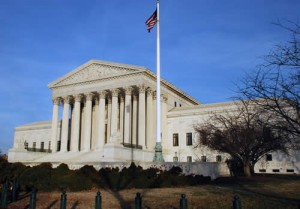Seventh Circuit Week in Review, Part I: PPGs and Halfway Houses
 The Seventh Circuit had six new opinions in criminal cases this week, all dealing with sentencing issues. Two focused on supervised release questions, which will be the subject of this post; the remaining four with be covered in another post.
The Seventh Circuit had six new opinions in criminal cases this week, all dealing with sentencing issues. Two focused on supervised release questions, which will be the subject of this post; the remaining four with be covered in another post.
First, in United States v. Rhodes (No. 07-3953), a sex offender challenged penile plethysmograph (“PPG”) testing as a condition of supervised release. PPG testing involves attaching a monitor to the male subject’s genitals, presenting him with an array of sexually stimulating images, and then determing the degree of arousal by measuring erectile responses. When used with sex offenders, the hope is that arousal patterns can be studied to determine how great the risk is that an offender will commit new sex crimes. Although experts disagree as the effectiveness of PPG testing, it has become a routine part of adult sex offender treatment programs.


